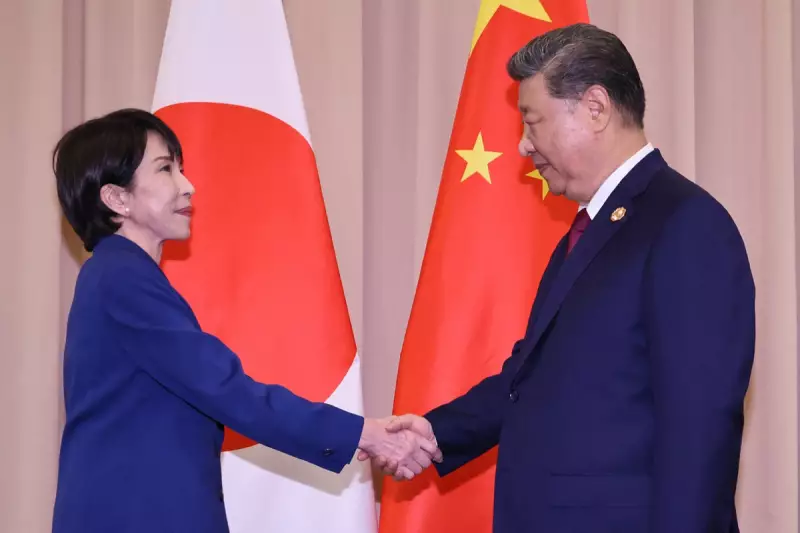
Cultural Fallout from Political Dispute
A significant number of concerts featuring Japanese artists and planned Japanese film releases have been abruptly cancelled across China. This wave of cancellations represents a direct spill-over into the cultural sphere of a deepening diplomatic dispute between Beijing and Tokyo.
The tensions were triggered by remarks made earlier this month by Japanese Prime Minister Sanae Takaichi, who suggested that a Chinese assault on Taiwan, if it threatened Japan's survival, could provoke a military response. China, which views Taiwan as a breakaway province, has demanded a retraction of these comments.
Widespread Cancellations Hit Major Cities
Authorities and venue operators in cities including Beijing, Shanghai, and Guangzhou were instructed to stop staging performances by Japanese acts and to halt applications for new events. Reports indicate that nearly a dozen concerts have been affected so far.
Fans of Japanese singer-songwriter Kokia were left disappointed when her Beijing concert on Wednesday evening was cancelled, with organisers citing a “last-minute technical issue”. According to eyewitness accounts on social media, the band was ready to perform, but the venue refused to allow them on stage.
Further cancellations include a show in Guangzhou featuring three members of the Japanese boy group JO1, which was axed with only a “force majeure” explanation provided. The China tour of Japanese rapper KID FRESINO has been indefinitely postponed.
In a particularly stark incident in Beijing, a concert by veteran jazz musician Yoshio Suzuki was cancelled after police intervened at the venue shortly before the performance was due to begin, explicitly stating that shows involving Japanese artists could not proceed.
Broader Impact on Entertainment and Tourism
The cancellations extend beyond live music. The Chinese debut of the comedy film Cells at Work!, scheduled for a Saturday release, has been postponed. Similarly, the animated feature Crayon Shinchan the Movie: Super Hot! The Spicy Kasukabe Dancers, set for an early December release, has been delayed.
The diplomatic row has also impacted travel and trade. Beijing has advised its citizens against travelling to Japan, leading to widespread cancellations that threaten a significant economic impact. Additionally, China announced a blanket ban on all Japanese seafood imports this week.
Music industry professionals are feeling the effects. One agent noted that the instability is causing foreign musicians to refuse bookings for China, fearing last-minute cancellations. This unpredictability, they warned, poses an unnecessary risk to potential investors and harms people-to-people exchanges.
The situation echoes previous cultural restrictions imposed by China. For years, an unofficial ban on South Korean entertainment has been in place, largely traced back to the deployment of a US missile defence system in South Korea in 2016.





